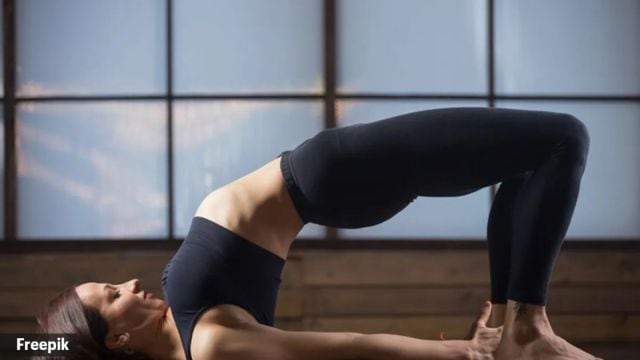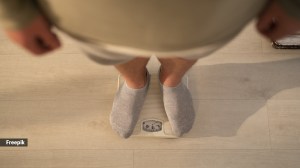Yoga better than a sleep pill for insomnia: What are takeaways from a Harvard study?
Simple routines can help you fall asleep faster
 Clinical trials at the Harvard Medical School, have shown that yoga and meditation can help you deal with insomnia or sleeplessness. (Source: Freepik)
Clinical trials at the Harvard Medical School, have shown that yoga and meditation can help you deal with insomnia or sleeplessness. (Source: Freepik)Next time you are having a sleepless night and carrying stress from work home, do some deep breathing or pranayama. Then try looking upwards and fix your gaze on your eye-brow centre above the nose. This is called the Shambhavi mudra and directly impacts the pineal gland which releases the sleep-inducing hormone called melatonin.
Clinical trials at the Harvard Medical School have shown that yoga and meditation can help you deal with insomnia or sleeplessness. Dr Sat Bir Singh Khalsa, Associate Professor of Medicine at Harvard Medical School, USA, who gave a talk at PGI, Chandigarh, says, “We found yoga practices help in sleep duration in addition to sleep efficiency, quality and other measures. Yoga is a multi-component practice that is also known to be effective in reducing arousal.” Dr Khalsa has been working on sleep and circadian rhythm research since 1985.
WHAT ARE FINDINGS OF THE CLINICAL TRIAL?
Researchers tested a simple yoga protocol in a chronic insomnia population. “At the end of the practice, statistically significant improvements were observed in sleep efficiency, total sleep time, total wake time, sleep onset latency or the time it takes to fall asleep (ideally 10 to 20 minutes), wake time after sleep onset, number of awakenings and sleep quality,” says Dr Khalsa.
Another study on the effects of yoga among high school students showed that regular yoga and deep breathing helped them fall asleep faster, increased their resilience to stress and reduced their post-traumatic stress disorder.
WHY YOGA IS THE BEST SLEEP AID?
Yoga reduces stress and negative thoughts. “You can change your thoughts with mindfulness. Yoga postures and deep breathing increase mind-body awareness, reduce stress and help you get away from negative thoughts that affect sleep,” says Dr Khalsa.
Sleep duration of seven and eight hours is now the recommended norm for everybody. “Yoga resulted in people with anxiety disorders sleeping soundly for a longer duration and reducing tossing and turning. Yoga has things to offer that medicine doesn’t and is better than a pill approach for insomnia,” adds Dr Khalsa.
HOW YOGA ADJUSTS THE NERVOUS SYSTEM
Regular yoga leads to the readjustment of the nervous system and restoring emotional stability. In people with high levels of stress, sleep becomes challenging with high levels of stress hormones like adrenaline and cortisol, which tend to keep you awake. “Deep yogic breathing can calm you, improve the strength of respiratory muscles, resulting in better oxygen saturation. It strengthens upper airway muscles, resulting in lower sleep disturbances, decreased physiological arousal effect, with asanas decreasing the heart rate,” says Dr Khalsa.
That is why he teamed yoga with cognitive behavioural therapy or talk therapy that helps practitioners change the way they think and change their behaviour through self-help strategies. The best yoga asana for sleep? “The bridge pose (which involves lifting your torso on the strength of your legs while lying flat),” says Dr Khalsa.
- 01
- 02
- 03
- 04
- 05































